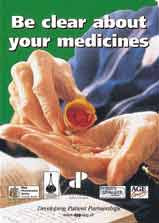Diazepam - Anxiety Treatment
 - What is diazepam?
- What is diazepam?
Diazepam is in the class of drugs called benzodiazepines. Diazepam affects receptors in the brain that become unstable. This instability is associated with anxiety, seizures, and muscle pain.
- What is the most important information I should know about diazepam?
Diazepam is a prescribed medication that is used to relieve anxiety, nervousness, and certain types of seizures. This medication should only be taken under the supervision of a mental health expert and or extensive therapy. In almost every study, diazepam has shown to be addictive and or habit forming. Moderate doses in only a three day period of time has shown to produce withdrawal symptoms that can be very serious.
- What are the effects of diazepam?
Diazepam is most commonly prescribed as an anti-anxiety drug or an anti-panic drug, so the effects include calmness, relaxation, and drowsiness. However, there can be adverse side effects which are extreme drowsiness, fatigue, and ataxia (loss of balance). Rarely, diazepam causes a paradoxical reaction with excitability, muscle spasm, lack of sleep, and rage. Confusion, depression, speech problems, and double vision are also rare side effects of diazepam.
- How should I take diazepam?
Diazepam is normally taken in a tablet form, of 0.5mg to 2mg doses. The tables are extended-release (long-acting) capsules. Do not open, chew, or crush the extended-release capsules; swallow them whole. It usually is taken one to four times a day and may be taken with or without food. Follow the directions on your prescription label carefully, and ask your doctor or pharmacist to explain any part you do not understand. Take diazepam exactly as directed.
- What special precautions should I follow?
Before taking This medication:
• Tell your doctor and pharmacist if you are allergic to This medication, alprazolam (Xanax), chlordiazepoxide (Librium, Librax), clonazepam (Klonopin), clorazepate (Tranxene), estazolam (ProSom), flurazepam (Dalmane), lorazepam (Ativan), oxazepam (Serax), prazepam (Centrax), temazepam (Restoril), triazolam (Halcion), or any other drugs.
• Tell your doctor and pharmacist what prescription and nonprescription medications you are taking, especially antihistamines; cimetadine (Tagamet); digoxin (Lanoxin); disulfiram (Antabuse); fluoxetine (Prozac); isoniazide (INH, Laniazid, Nydrazid); ketoconazole (Nizoral); levodopa (Larodopa, Sinemet); medications for depression, seizures, pain, Parkinson's disease, asthma, colds, or allergies; metoprolol (Lopressor, Toprol XL); muscle relaxants; oral contraceptives; probenecid (Benemid); propoxyphene (Darvon); propranolol (Inderal); ranitidine (Zantac); rifampin (Rifadin); sedatives; sleeping pills; theophylline (Theo-Dur); tranquilizers; valproic acid (Depakene); and vitamins. These medications may add to the drowsiness caused by This medication.
• If you use antacids, take This medication first, then wait 1 hour before taking the antacid.
• Tell your doctor if you have or have ever had glaucoma; seizures; or lung, heart, or liver disease.
• Tell your doctor if you are pregnant, plan to become pregnant, or are breast-feeding. If you become pregnant while taking This medication, call your doctor immediately.
• If you are having surgery, including dental surgery, tell the doctor or dentist that you are taking This medication.
• You should know that this drug may make you drowsy. Do not drive a car or operate machinery until you know how this drug affects you.
• Remember that alcohol can add to the drowsiness caused by this drug.
• Tell your doctor if you use tobacco products. Cigarette smoking may decrease the effectiveness of this drug.
Mike Morgan.
Articles appearing on Anxiety Cure Blog are written by contributing authors, and the views and opinions expressed are those of the authors only. All News and Press Release information on the pages of Anxiety Cure Blog are cited from public sources on the internet.
Note: The above information is intended to supplement, not substitute for, the expertise and judgment of your physician, pharmacist, or other healthcare professional. It is not intended to diagnose a health condition, but it can be used as a guide to help you decide if you should seek professional treatment or to help you learn more about your condition once it has been diagnosed.
Related Anxiety Treatment Information
- Anxiety Relief
- About Anxiety Medications
- Guide to Anxiety Treatment
- Combating Anxiety
- Anxiety Treatment: Xanax
- Anxiety Treatment: Alprazolam

No comments:
Post a Comment